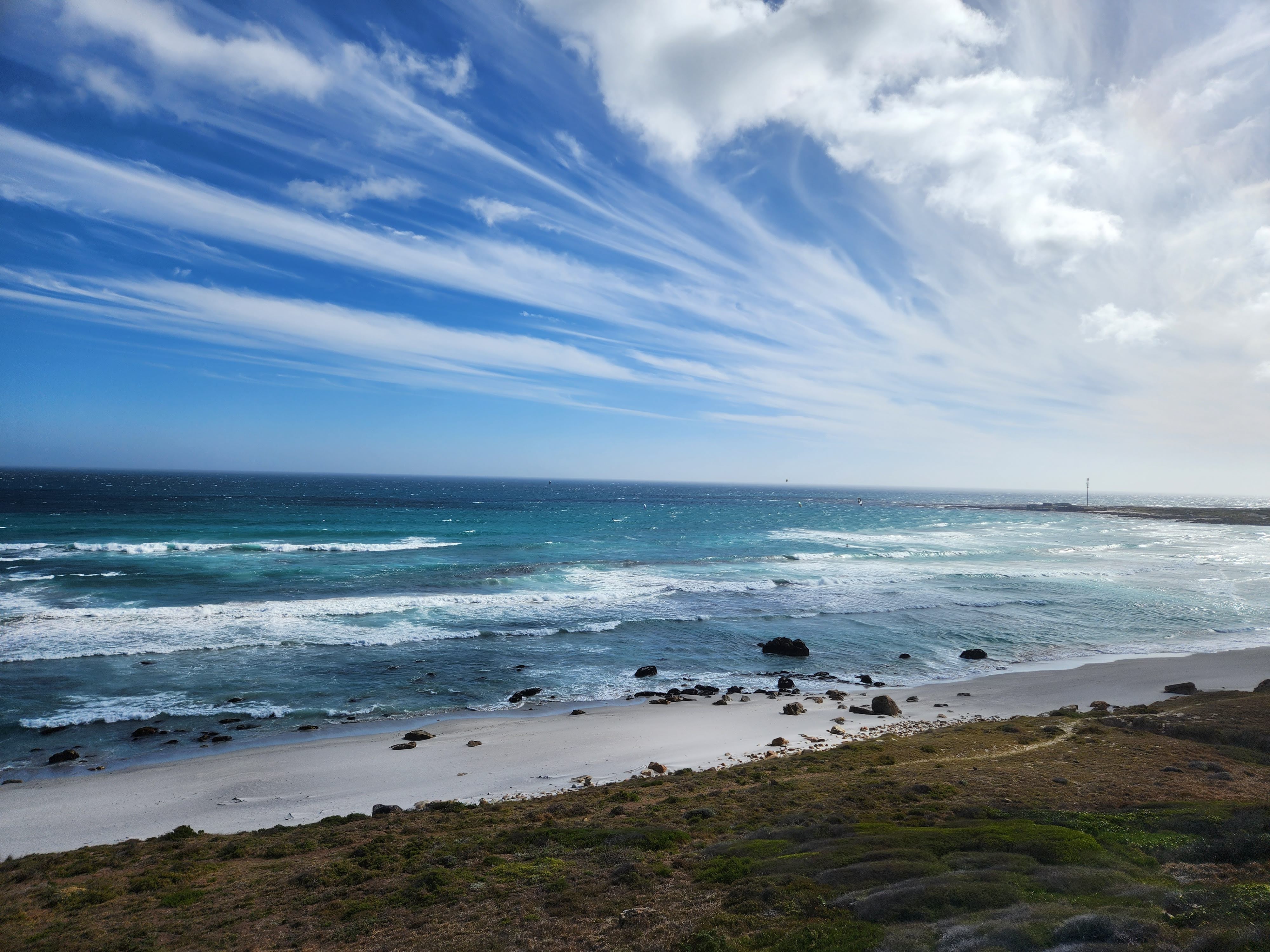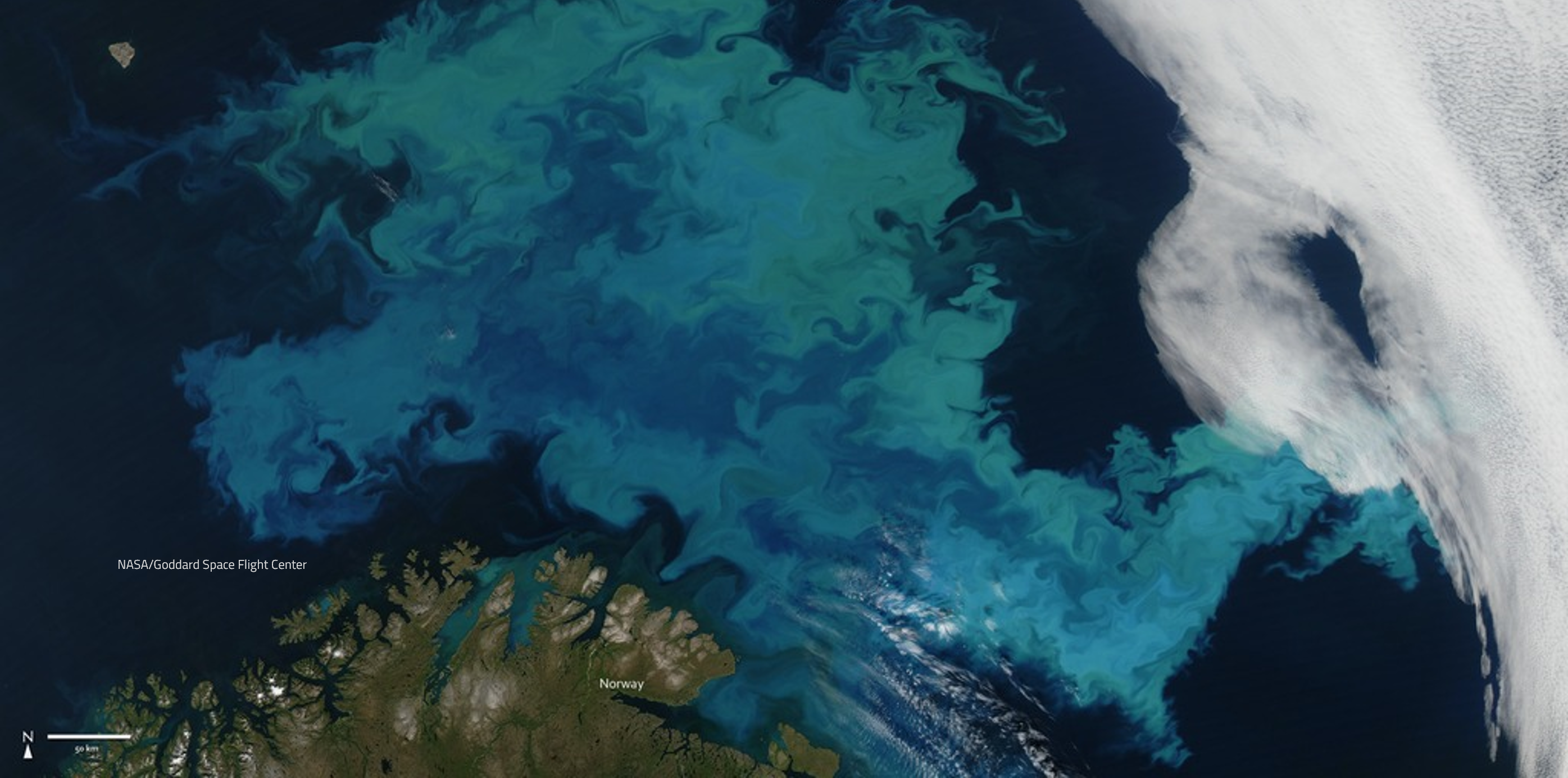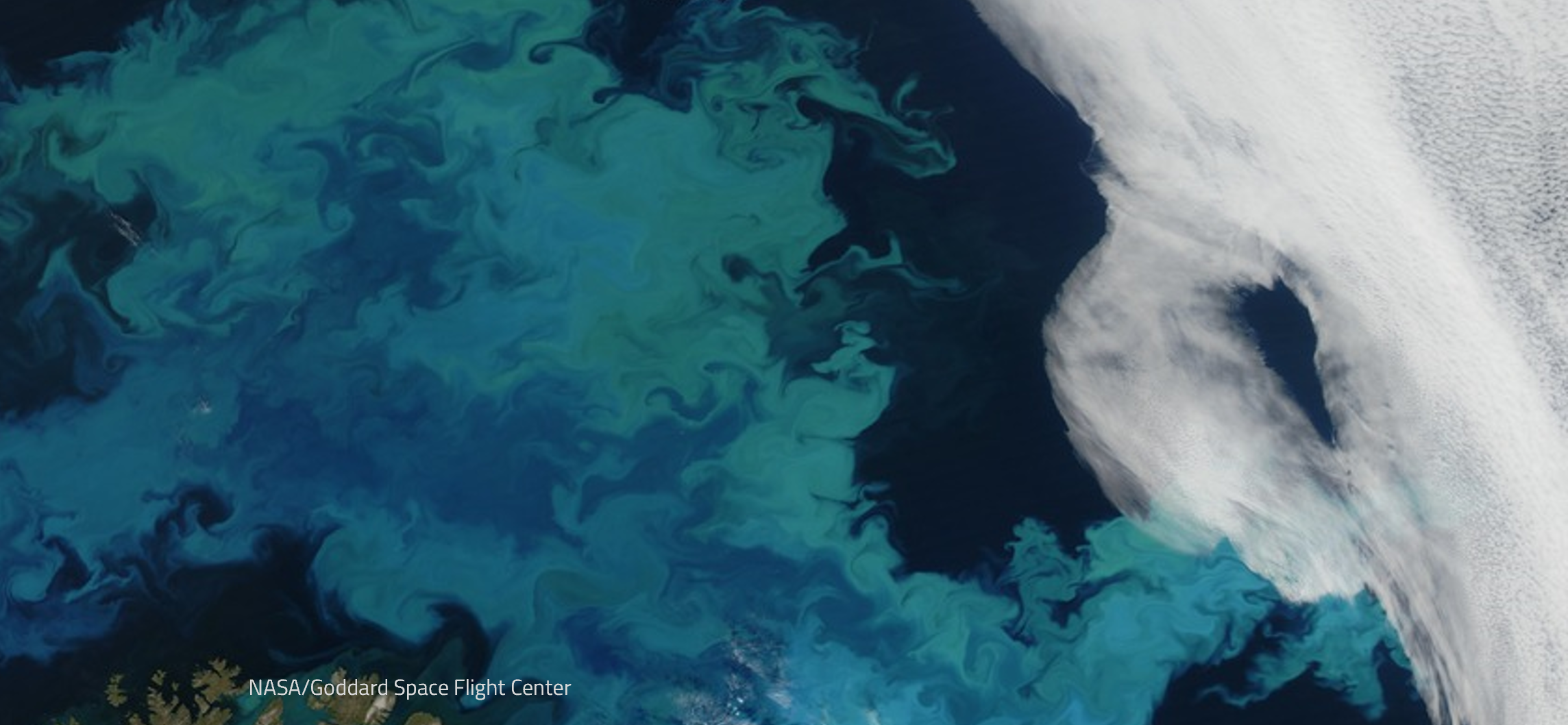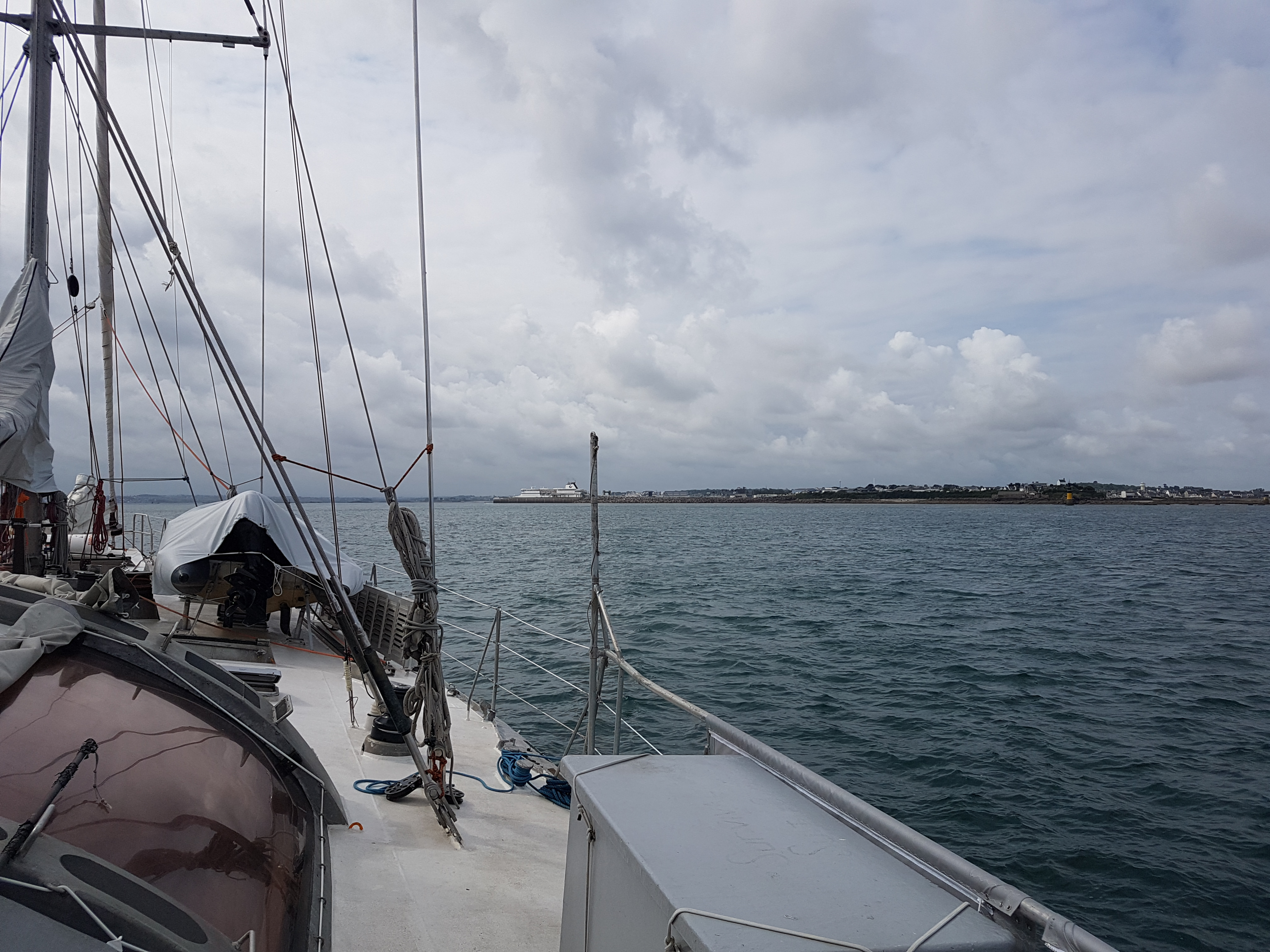
Research
Phytoplankton are unicellular alga that form massive oceanic blooms covering thousands of square kilometers. Nearly half of the photosynthetic activity on Earth is performed in the ocean by these microscopic organisms, and their influence on global cycles of carbon, nitrogen, and sulfur is immense. The fast turnover rates of these organisms make them a sensitive proxy for evaluating the impact of climate change on marine ecosystems.
Microbial interactions that regulate the fate of algal blooms play a profound role in determining carbon and nutrient cycling in the ocean and feedback to the atmosphere. Some of the key mortality agents of algal cells are marine viruses, bacteria, and grazers. The specific interactions with these pathogens that leads to the demise of a bloom will have a unique footprint on the environment. Each interaction will differentially influence the carbon export to the deep ocean, recycling of nutrients available to the rest of the marine organisms, biodiversity, and even influence the atmosphere above the decaying bloom. The latter occurs when dying algal cells produce volatile molecules that are emitted to the atmosphere as aerosols and can modulate cloud formation.







